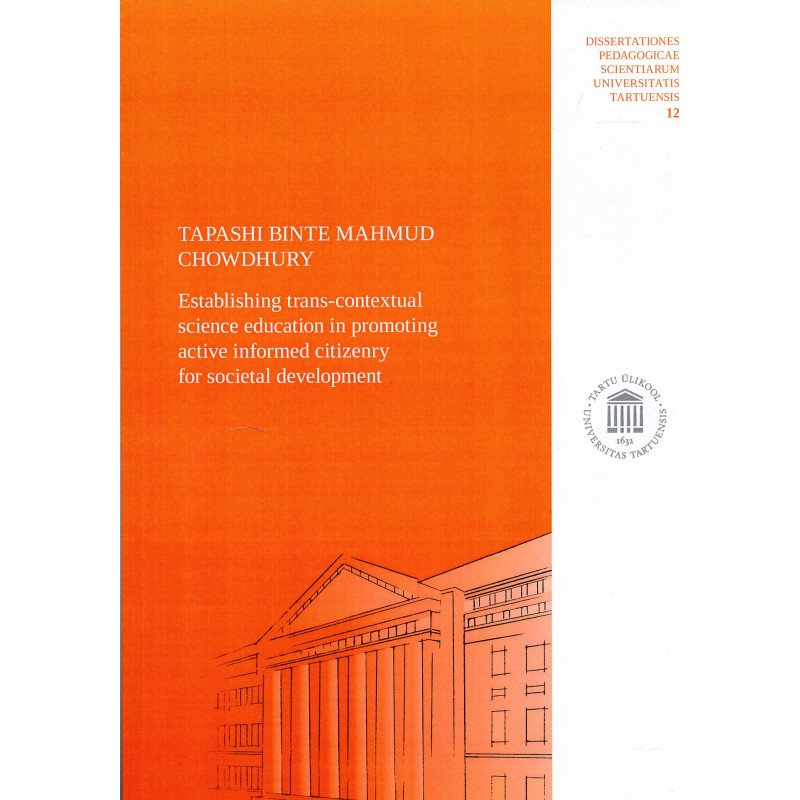



Tartu : University of Tartu Press, 2022
ISBN: 9789916270134
198 Pages : illustrated ; 25 cm
Dissertationes pedagogicae scientiarum Universitatis Tartuensis ; 12
Softcover new book
Doctoral theses defended at the University of Tartu, summary in Estonian
The role of science education was seen as promoting scientific literacy in a manner which enabled students to utilise their competences in a real-world context, in addressing sustainability-related societal concerns, as well as the collective wellbeing. For this, the research aimed to put emphasis on the role science education was, should and could play for societal development, both from a theoretical and practical point of view. In seeking to identify to what extent science education could and should aim to prepare the students, this research took into consideration the policy documents, and put forward a wholistic, all-embracing concept of active informed citizenry (AIC). This research additionally put forward a 4-phase, trans-contextual science education model, derived and enhanced from the previous 3-stage model in the literature (Holbrook & Rannikmäe, 2010). The research also aimed to identify teacher perceived value towards, and practice of incorporating in their teaching learning practice, the transference of science students’ scientifically influenced, and collective actions from classroom to a beyond-school context, in addressing societal development. The results indicated a significant contrast between teacher perceived importance and practice, and also among their perceived importance of promoting science conceptual learning and other aspects of the 4-phase model, such as addressing student motivation, promoting socio-scientific decision-making, or enabling student transference of science learning in a beyond-school, societal context. Furthermore, the research aimed to put forward a validated teaching-learning module based on the previous studies and sought opinion from science education researchers, curriculum developers and teacher educator points of view, on the value of promoting science education for societal development. The results showed that the purpose of science teaching learning was perceived to impact on three different developmental levels– student individual development (i.e. learning science conceptual knowledge, employable scientific skills, scientific values and individual attitude towards science), student social development (i.e. collaboration, cooperation, having a sense of community, argumentation, or group decision-making), and societal development (i.e. supporting society to resolve societal concerns via active, collective, and scientifically influenced engagement, promoting collective scientific attitude towards resolving socio-scientific dilemma via logical persuasion).